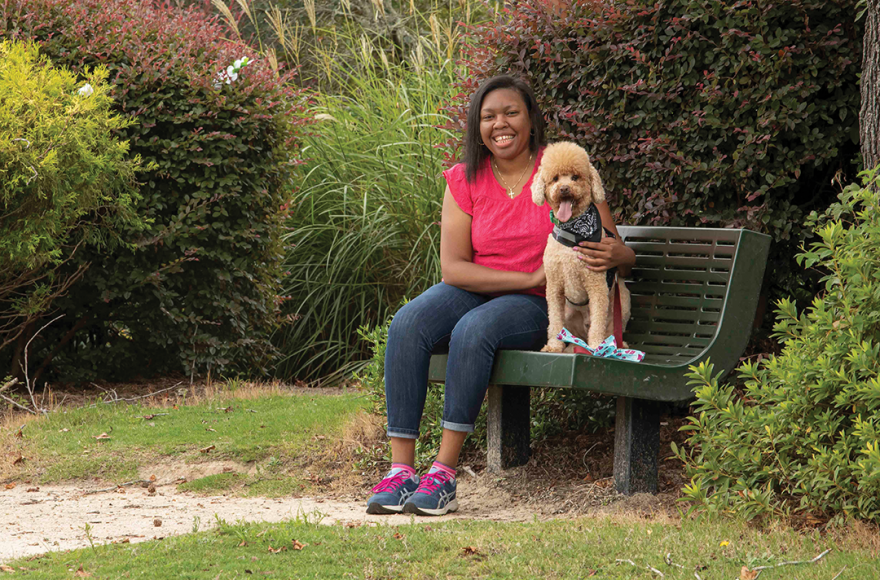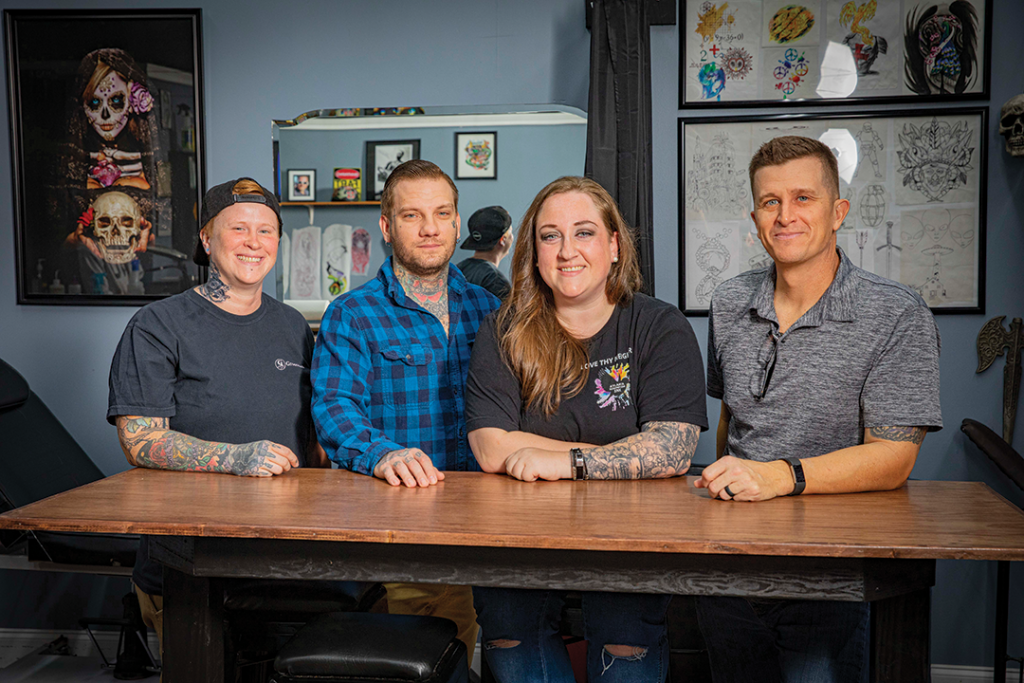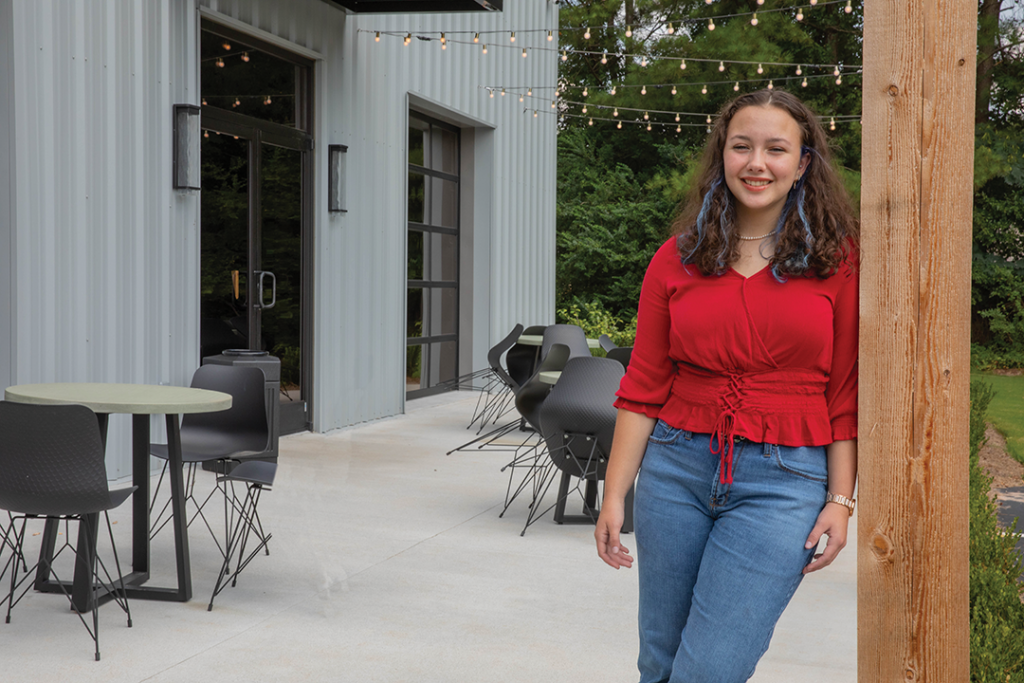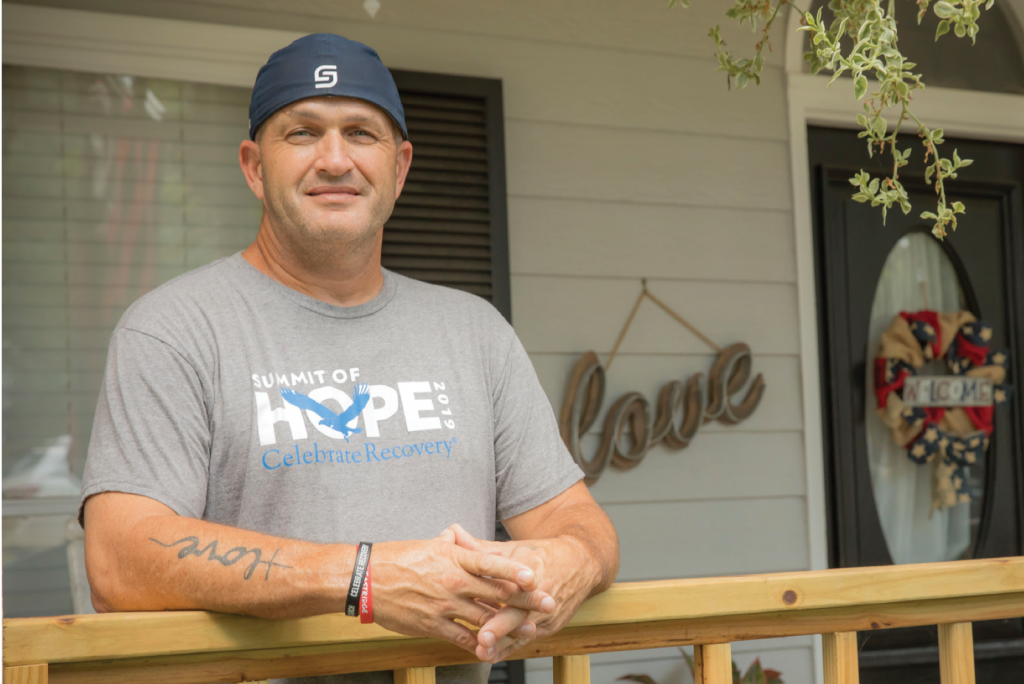Celebrate Recovery, in its 20th year of existence, continues to offer hope and life change for those suffering from addiction, depression, anxiety, eating disorders and a variety of other maladies often swept aside by society.
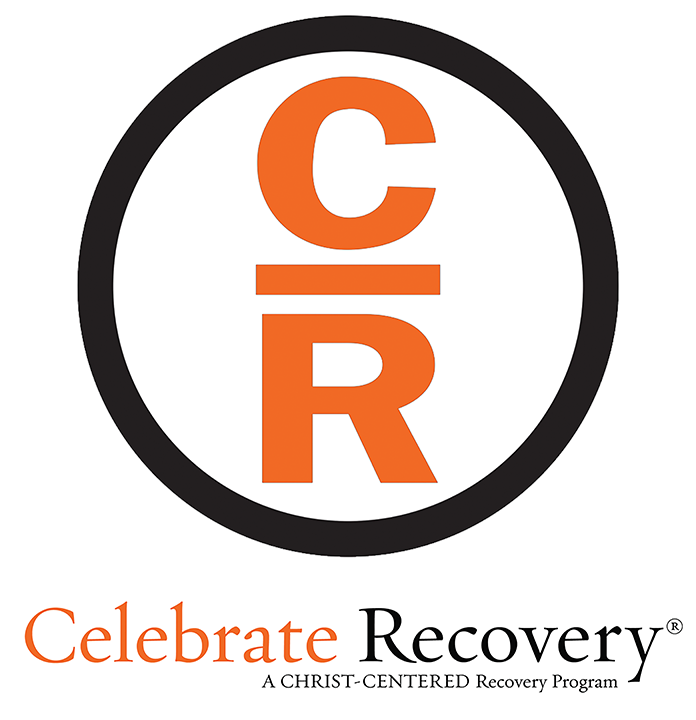
Melissa Lombardi recognizes a common thread that has run throughout her life. It can be seen in almost everything she does, from her work as a doula, or personal childbirth specialist, to being a grandmother and serving as a volunteer at Celebrate Recovery.
“They all have to do with coming alongside people and just helping them and walking with them through, oftentimes, a new journey,” she said.
Lombardi views it as a calling from God—one enriched by the crucible of her own experience. Twenty years ago, she was the one who needed help. She was in pain, angry and exhausted from trying to restore a broken relationship. Admittedly, there were control issues.
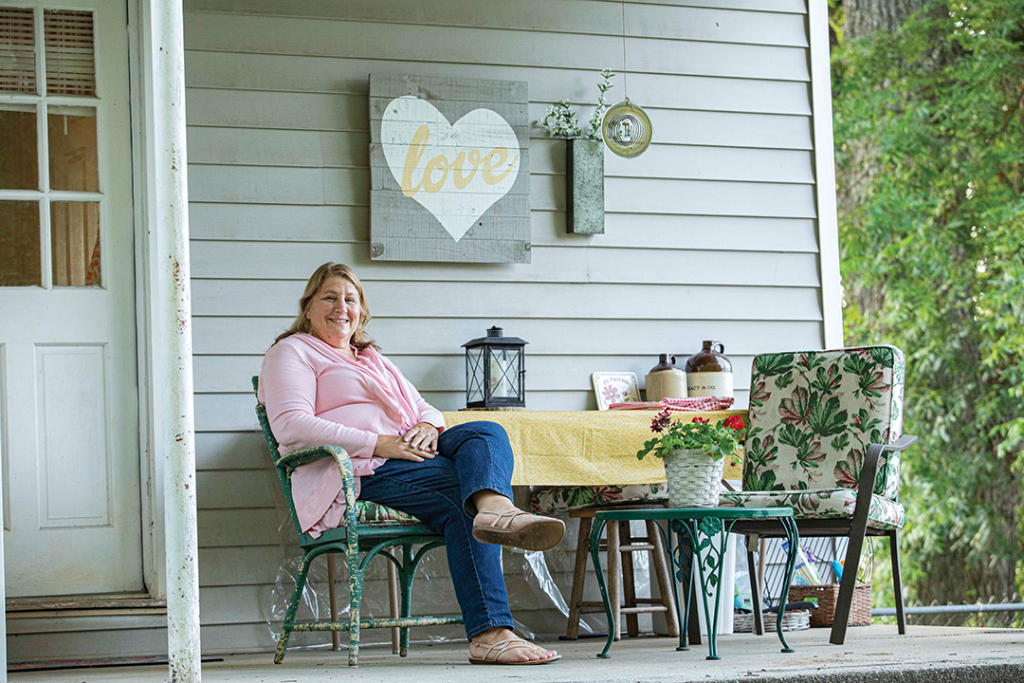
“I became so fixated on trying to fix them I really lost sight of who I was and how Christ saw me,” she said, “and I just became really negative and, after a while, a person I didn’t like at all.”
All her efforts to fix what she thought were the problems were not working. “I came to the end of myself,” she said. Someone encouraged Lombardi to look into the Celebrate Recovery program that had just launched earlier that year at Eastridge Church. In addition to the 12 Steps from Alcoholics Anonymous, CR incorporates the eight principles from the Beatitudes, found in Jesus’ “Sermon on the Mount.” Even though she had no idea what to expect, Lombardi made a commitment to change. Although the work would be hard and the growth often slow, the rewards of participating in Celebrate Recovery’s Open Share group began almost immediately. Discovering that there were other people just like her dealing with the same issues was like a “gift” for Lombardi. She remembers her thoughts at the time. “I may feel like I’m going crazy sometimes in dealing with these hurts, but really, I’m not,” Lombardi said, “and other people can relate to me. I wasn’t alone in this.”
“I became so fixated on trying to fix them I really lost sight of who I was and how Christ saw me,” she said, “and I just became really negative and, after a while, a person I didn’t like at all.”
Melissa Lombardi
Working through the 12 Steps represents an essential part of the process of healing and growth at CR. For Lombardi, Step 2, which affirms a belief in a “power” greater than self “that can restore sanity,” was pivotal. “Life really began to change when I quit trying to take on all the control to fix somebody else and to fix my life within my own power,” she said. “It was really just accepting that I’m not God.”
In the safety of an empathetic community that both supports and holds her accountable, Lombardi continues an endless but fulfilling process of growth and change.
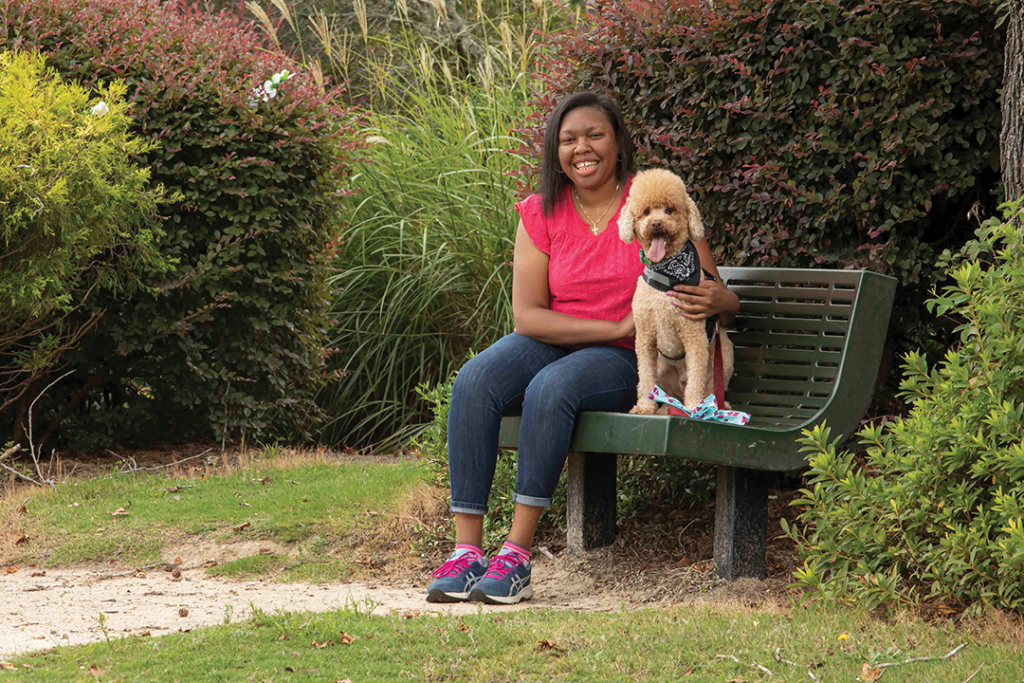
“Just through God’s love and the teachings of CR,” she said, “I’m learning kind of new ways to be me [and finding a] new purpose for myself.”
Lombardi has now been involved with Celebrate Recovery for 19 years. For her, it serves as a gathering place for “people who feel like family” and “2 a.m. friends” who have been there for her time and time again. Over the years, she has co-led Step groups and served as a sponsor for many participants. Currently, she serves as an Open Share Group co-leader and an encourager coach. Still, Lombardi keeps a watchful eye on herself.
“I’m always working the program for my own recovery,” she said. “I can’t give away what I don’t have.”
Vanessa Dooley struggled just to get out of bed most mornings. Only three years earlier, in 2014, the future looked bright, as she graduated from law school at the University of Georgia. After moving to Seattle, she passed the bar exam the following year and landed her first job as a public defender. Mere months later, however, unnamed personal challenges began to take their toll. Eventually, a debilitating cloud settled over her, essentially putting her personal life and career as a criminal defense attorney on hold. The diagnosis? Anxiety and depression.

Accepting the fact that she had a mental illness changed the way Dooley viewed herself. “I felt like a failure,” she said. “I felt useless.” It also caused her to re-evaluate how she looked at God and compelled her to ask some difficult questions. “If God is this big God who can change the universe, then why did he give me this illness, and if God is this big God who can move mountains, then why can’t I just get through my day?”
Dooley eventually gained understanding, if not answers to her questions, but it took time. Medication relieved her depression and anxiety but only marginally. “I was just really broken,” she said. When she was invited to a Celebrate Recovery gathering at Eastridge, she accepted the invitation despite knowing little about what she was going to experience. “When I came in the door to Celebrate Recovery, I really didn’t know what it was or what was happening,” she said, “but I kept seeing all these people who were smiling at me and just welcoming me in.”
“I’m still not perfect, but I have peace,” she said. “I think Celebrate Recovery reminded me that I’m not alone in my struggles, and that I am enough because God is enough.”
Vanessa Dooley
Dooley’s first night at Celebrate Recovery followed the usual format that begins with a Big Group time of Christian praise and worship, followed by a lesson on one of the 12 Steps utilized in Alcoholics Anonymous meetings. Afterwards, participants shift to smaller Open Share groups in which they support each other while working through a particular issue such as addiction, abuse, depression, anxiety, anger, pornography or eating disorders, to name a few. Newcomers can go to CR 101, where they can ask questions about the program and learn about all of the Open Share Group options. A women’s group for depression was the right fit for Dooley.
“I went to that group the next week and then the next week and the next week,” she said. “It just took.”
In Celebrate Recovery, Dooley encountered a measure of authenticity that she had found lacking in her church experience growing up. “You don’t really hear about addicts or depression or all the other issues we deal with,” she said. “CR brought this human aspect that it was real people and real church, and that’s what I really loved about it.” As she shared her struggles with others in her group and they shared theirs, Dooley felt a connection. While the details of their stories were different, she discovered their struggles were largely the same. Somehow, it helped to hear her own issues coming from outside herself: “To hear it from someone else’s mouth really changes it and, I think, starts the healing process.”
Two and a half years into her time at Celebrate Recovery, Dooley continues to find support through a community keenly aware of its need for God and each other. She has contributed through a variety of roles, acting as a server in the dinner food line before CR and as a volunteer in the nursery during Big Group. She also shines as the heralded “Chip Diva” in her small group, passing out commendations for progress with a distinctive flair. Although questions and struggles remain for Dooley, she continues to learn to take one day at a time.
“I’m still not perfect, but I have peace,” she said. “I think Celebrate Recovery reminded me that I’m not alone in my struggles, and that I am enough because God is enough.”
Eddie Hutwagner had parlayed a love of working with his hands into a successful career in machine design and automation, rising to the level of plant manager. “I like to build things,” he said. However, roughly four years later, after a series of transfers and plant closures, Hutwagner found himself working as a temp with a large manufacturer. “It was a humbling experience,” he said. At some point, he turned from drinking socially to drinking as a coping mechanism.
“I can’t tell you how long that slide was—probably about 17 or 18 years,” he said. “I knew I was really in trouble when I started inventorying my beer all the time.”
Hutwagner’s life had begun to crumble for reasons he still does not completely understand. Disenfranchisement with his career was part of his complicated story. A genetic predisposition to alcoholism was another. Whatever the causes, his alcohol abuse made his growing depression worse, which led to more drinking, creating a vicious and destructive cycle.
“The next thing I knew,” Hutwagner said, “I was in really bad health and really, really overweight.”
The more he drank, the more he withdrew from others. “I was angry, mean, violent at times,” he said, “especially when alcohol was involved.” While Hutwagner drank, his wife prayed. She had been going to Celebrate Recovery for about two years and had shared his addiction struggles with her group. “She was praying for me and had people I didn’t even know praying for me,” he said. Finally, Hutwagner reached a breaking point. “I got sick and tired of being sick and tired … and ashamed,” he said. Hutwagner remembers his first night at CR. “I listened to the lesson, thinking, ‘This ain’t going to do me any good.’” His response as he sat in the newcomers group was equally unenthusiastic: “I’m thinking, ‘This is ridiculous. I don’t need to be here.’”
“I can’t tell you how long that slide was—probably about 17 or 18 years,” he said. “I knew I was really in trouble when I started inventorying my beer all the time.”
Eddie Hutwagner
Hutwagner abruptly left the meeting, got in his car and drove away. He did not get far. “I made it down the road just a little piece,” he said, “and I guess the Holy Spirit was like, ‘Nope, you need to turn around. This is what I’ve got planned for you.’ I said, ‘OK’ and turned around and went back.”
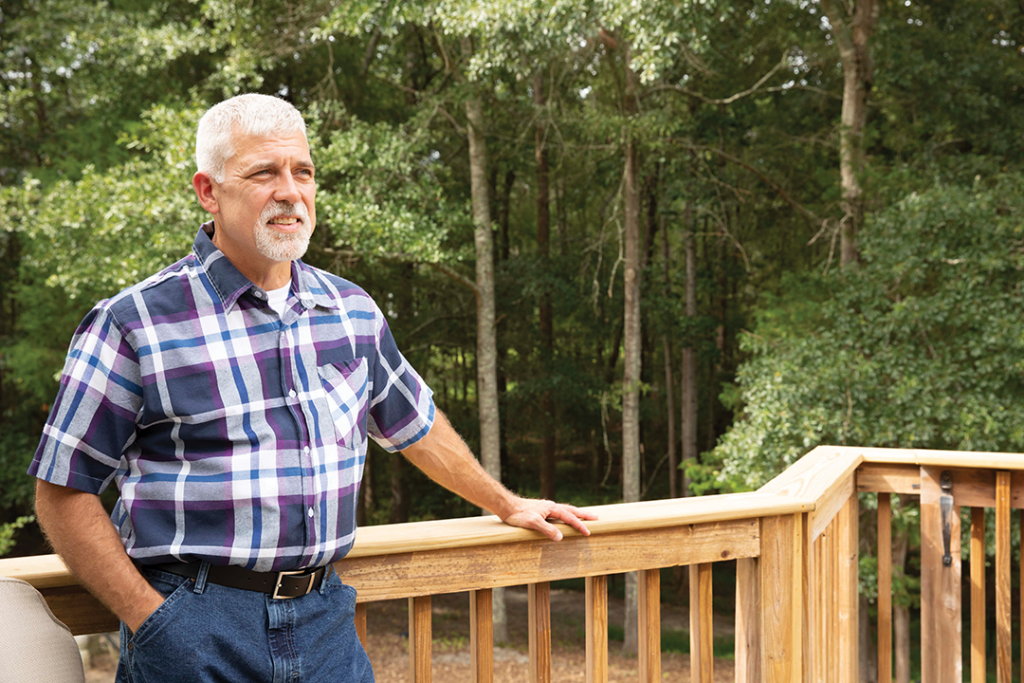
Though Hutwagner had taken his first shaky steps toward recovery, it would be a couple of months before he was finally able to draw a line in the sand. “I don’t know when I started drinking exactly, but believe me, I know exactly the day I stopped,” he said. “I had begun to face up to the fact that I was killing myself.”
Hutwagner was honest with himself and with others. Though it was difficult at first, he began to share openly in his group about his addiction, his weaknesses, his struggles. In the company of a group of understanding and compassionate men, he began to leave denial behind and move toward forgiveness and healing—into the deliverance for which he had prayed so desperately. Hutwagner hesitates to use the word “miracle” to describe what took place the day he stopped drinking. “I’m just one bad choice away from doing something I don’t ever want to do again,” he said. Still, the dramatic transformation was undeniable. He has lost over 100 pounds, come off most medications and recently celebrated two years of sobriety. He strives to make amends for past mistakes. “I still have my daily struggles,” he said, “but the beast was in the cage.”
Today, Hutwagner co-leads a Step Study and an Open Share Group, and he has discovered that he furthers his own growth and recovery by serving others. “You can’t keep it unless you give it away,” he said. When it mattered most, he met not with condemnation but compassion—a compassion born out of empathy.
“It’s realizing we’re not these perfect little people walking around with no struggles [but] that we have ‘hurts, habits and hang-ups,’” he said. “It’s followers looking after each other, helping each other in their walk and loving each other the way Christ commanded us to.”
Click here to read more stories by David Roten.

